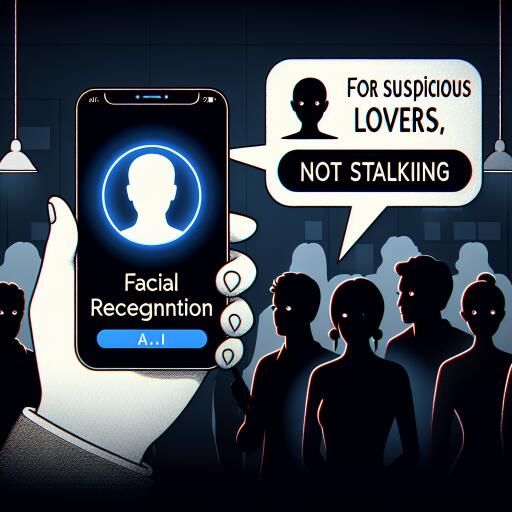Unraveling the Shadows of Doubt: A New Service for Wary Hearts
Valentine’s Day, a time for romance and reaffirmation of love, can also be a period of anxiety for those haunted by the specter of infidelity. Addressing these concerns, an innovative online platform has emerged, promising to shine a light on potentially clandestine activities on dating apps such as Tinder, Hinge, and Bumble through the use of facial recognition technology.
Dubbed OopsBusted, this distinctive service offers to meticulously comb through leading dating apps to detect if an individual’s partner is active on these platforms. Users are required to supply basic information about the person they’re monitoring, including their name and location. The service goes on to provide a comprehensive report if a match is found, encapsulating everything from profile pictures to biographical details and personal interests, ensuring the parameters of the search can be finely tuned to increase its efficacy.
For those plagued by the dread of betrayal, OopsBusted extends a subscription-based feature that alerts users the moment a new dating profile matching their search criteria is established. This feature aims to offer immediate reassurance or confirmation, providing a unique avenue for those seeking clarity on their partner’s online activities.
Previously, individuals might rely on rudimentary tools like Google Reverse Image Search or explore facial recognition searches via platforms like PimEyes to sate their suspicions. However, the advancement and accessibility of powerful image search technologies have spawned concerns over privacy invasions. These developments underscore the double-edged sword of surveillance technologies: while they can assuage concerns over fidelity, they simultaneously open the door to potential misuse by individuals with malicious intent.
Aware of the ethical and privacy implications, OopsBusted assures that all user data is secured through encryption, emphasizing operation within the confines of the law. Nonetheless, the service encourages users to wield their capabilities judiciously, evoking considerations of ethical responsibility. Despite acknowledging the inherent risk that the platform might attract stalkers, there is an explicit caveat in the terms of service against misuse, although the platform stops short of verifying the identities of those conducting searches, leaving room for potential abuse.
Ben Moataz, the visionary founder and CEO behind OopsBusted, articulates the company’s mission as one of empowerment: “We created OopsBusted to empower people with definitive proof when suspicions arise about their partner’s loyalty.” By harnessing sophisticated facial recognition technologies, their algorithms promise to unveil the truth behind shadows of doubt, ideally fostering trust and mitigating uncertainties that can corrode the bedrock of meaningful relationships.
“We aim for OopsBusted to promote trust and reduce doubts that erode the foundation of any healthy relationship,” Moataz asserts, underlining the dual purpose of the platform: to provide peace of mind through transparency while navigating the delicate balance between surveillance and privacy.
At its heart, OopsBusted represents the modern-day dilemma of technology’s role in our personal lives: where do we draw the line between seeking assurance and respecting privacy? As this service gains traction, it may well become a litmus test for the health of relationships in the digital age.









